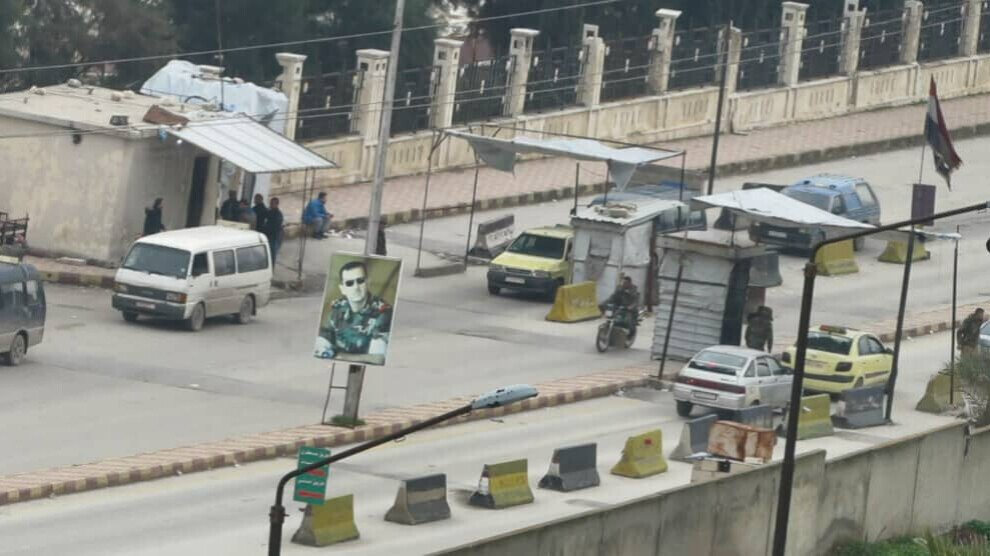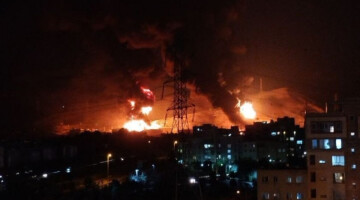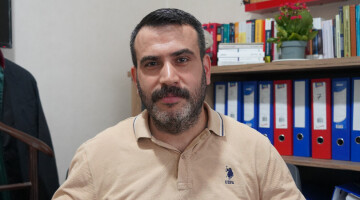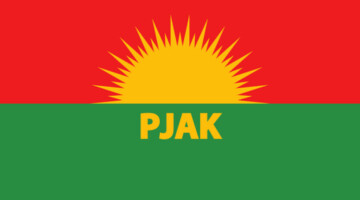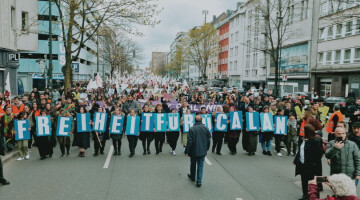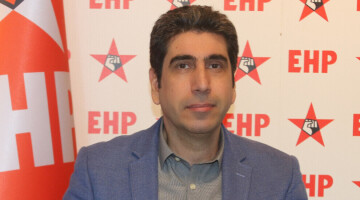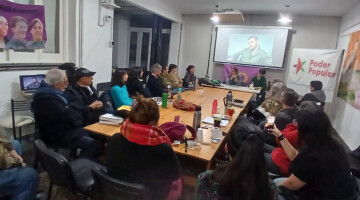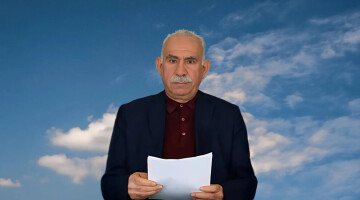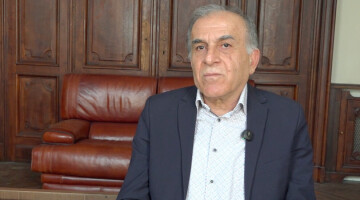The Sheikh Maqsoud neighbourhood, renowned for the resistance mounted by Shehba and Aleppo against Turkish state gangs in the same geography, is confronted with the Damascus administration forces, which control the entry and exit passages to these areas, with food, medication, and economic embargoes.
While the Damascus administration implements embargoes in order to weaken the Autonomous Administration of North and East Syria, to make the people submit by starving them, and extract concessions from the Democratic Autonomous Administration of North and East Syria in areas such as Raqqa, Tabqa, and Deir ez-Zor, gang-like forces within the Damascus forces, such as the 4th Brigade, profit individually. This includes practices such as embargoes and transition restrictions for benefit.
For the past four years, the Damascus administration has imposed an embargo on these areas, which has been stepped up in recent years. As of March 13, the 4th Brigade troops restricted the movement of essential goods to Sheikh Maqsoud, Ashrafiyah, and Shehba, which is located 10 kilometers north of these neighborhoods, while flour and bottled gas are entirely blocked.
While the latest embargo was largely felt due to the scarcity of gas in Shehba, where 150 thousand people live, 100 thousand of them being from Afrin, in the Sheikh Maqsoud and Ashrafiyah neighbourhoods, where 200 thousand people live, all seven bakeries have remained closed for a week due to a lack of flour.
So, where are Sheikh Maqsoud and Ashrafiyah located? What are the Damascus Administration's and the 4th Brigade's involvement and intentions in these embargoes? Will the people, who did not submit to the Syrian regime's and Turkish-backed gangs' harsh attacks and economic embargoes after the start of the Rojava Revolution, submit to these practices? What do the Damascus regime and its increasingly gang-like troops gain from these policies? We'll look for answers to these questions.
PEOPLE'S REVOLUTIONARY WAR AGAINST TURKISH-BACKED GANGS IN SHEIKH MAQSOUD
The neighbourhoods of Sheikh Maqsoud and Ashrafiyah are located north of Aleppo and 10 kilometres south of Shehba. Because of their geographical location, both of these neighborhoods, like Afrin, have always been the weak spot of the Rojava Revolution. They did, however, set an example for the rest of Northern and Eastern Syria with their determination, resistance, and insistence on peoples' brotherhood and self-government. This assessment would not be incorrect for Shehba, which has been under constant attack by the Turkish state for the past four years.
Since late 2012, there have been no Damascus administration forces in the Sheikh Maqsoud neighborhood. In July 2016, YPG-YPJ forces liberated half of the Ashrafiyah neighborhood, which had been occupied by approximately 30 mercenary groups affiliated with the Turkish state between 2014 and 2016.
On July 26, 2012, the Sheikh Maqsoud People's Assembly was established, followed by the Ashrafiyah People's Assembly, after regime forces were heavily cleared from the neighborhood. Attacks on neighborhoods, which faced both land and air aggressions by the Damascus administration and attacks by gang groups affiliated with the Turkish state in the final months of 2012 increased even more in 2013-2014.
From 2013 to August 2016, the Sheikh Maqsoud and Ashrafiyah neighborhoods were subjected to attacks by Turkish state mercenaries, as well as heavy air attacks by the Damascus administration, which claimed to be fighting these gangs. Some of the people migrated to Afrin during this period of time. Thousands of people who remained in the neighborhood, which was also under economic embargo amidst heavy attacks, developed the Revolutionary People's War and fought alongside the YPG-YPJ and Jabhat al-Akrad forces.
SHEIKH MAQSOUD’S PEOPLE PROTECTED ALEPPO AND KEPT SYRIA UP
Sheikh Maqsoud and Ashrafiyah People's Assembly Co-chair Muhammed Şêxo emphasized that these neighborhoods protected Aleppo, which is under Damascus' control, through their resistance. This fact becomes clearer when we consider the resistance that these two neighborhoods have developed since 2012, which are frequently subjected to the Damascus administration's embargoes today. In 2013, the attacks and resistance became even more intense.
When nearly 30 Turkish state-led mercenaries, including ISIS and Al Nusra, occupied the majority of the Ashrafiyah neighborhood in 2013-2014, residents fled to Sheikh Maqsoud and continued their resistance there.
The YPG-YPJ and Jabhat Al Akrad, which responded to a months-long attack by at least 20 gang groups, including Al Nusra, in 2016, almost immediately liberated some streets in Sheikh Maqsoud, half of the Ashrafiyah neighborhood, and eight neighborhoods in Aleppo. Encouraged by the YPG-YPJ’s actions, the Damascus regime took control of half of Ashrafiyah. The Turkish state blamed its inability to completely occupy Aleppo on the people's resistance in Sheikh Maqsoud and Ashrafiyah, which was true. The resistance in the Sheikh Maqsoud neighborhood, which has a strategic location because it is Aleppo's largest and highest neighborhood, protected the entire city.
NOT THE FIRST EMBARGO
Reaching an agreement for the opening of a corridor into Shehba for the evacuation of people from Afrin, which was occupied by Turkey with Russia in March 2018, the YPG-YPJ withdrew from eight neighborhoods and Shehba that they liberated in 2016, except for Sheikh Maqsoud and Ashrafiyah, and handed them over to regime forces.
The YPG-YPJ-Asayiş and Self-Defense Forces now provide security for the entire Sheikh Maqsoud and half of Ashrafiyah. In these areas, there are no Damascus administration forces. The checkpoints at the neighborhood's entrance, however, are held by the regime's 4th Brigade forces and intelligence forces. Again, the regime controls the Aleppo-Shehba road, the Manbij-Aleppo road, and all surrounding roads.
Following the occupation of Afrin, over 100,000 Afrin residents settled in these two neighborhoods. Both neighborhoods now have over 200,000 residents, including Kurds, Christians, Muslims, Arabs, and Turkmens.
While the Sheikh Maqsoud Democratic People's Assembly, founded in 2012, and the Ashrafiyah Democratic People's Assembly, founded in 2017 following the liberation of Ashrafiyah, continue to exist, they are coordinated with the Ashrafiyah and Sheikh Maqsoud General Assembly.
Textile workshops and some small businesses provide economic activity in both neighborhoods, where the people are organized in a total of 41 communes. Some of the people work in or do business with the areas controlled by the Damascus administration in Aleppo. However, they are faced with actions by the 4th Brigade, such as asking for a bribe, keeping them waiting, confiscating their phones, and so on.
PEOPLE HAVE NO SUPPLIES SINCE MARCH 13TH
On March 13, 2022, the 4th Brigade Forces stopped a truck carrying sugar to the Sheikh Maqsoud Neighborhood at the Cizîr Checkpoint and opened fire on the vehicle's tires. Following this incident, entry of basic food staples, medicine, and fuel into Sheikh Maqsoud, Ashrafiyah, and Shehba was stopped.
Sheikh Maqsoud and Ashrafiyah General People's Assembly Co-chair Muhammed Şêxo stated, "Flour has not been transported to the neighborhood since 13 March. We had flour in our warehouses, so we used it. But now that it's over, there's been a bread shortage in the neighborhood for a week now. They allow the passage of other foodstuffs and drugs, albeit in small quantities, but this falls far short of meeting the needs of our neighborhoods, which house over 200,000 people.
The Ukrainian conflict is still going on. Is there an agreement between the Turkish government, Russia, and the regime? We don't know whether the embargo is being escalated for political reasons or because the regime's 4th Brigade is banding together. However, the embargo policy imposed on our neighborhoods and Shehba is not new. It's been going on for four years, but it's gotten a lot worse in the last two. The same embargo applies to Ashrafiyah and Shehba, who are standing next to us. There is currently a problem with access to basic foodstuffs in Shehba, which is constantly attacked by the Turkish state and its mercenaries and defends the entire region with its resistance like us. But I know that the biggest issue is with gas."
PEOPLE DID NOT SURRENDER EVEN DURING THE HEAVY WAR
In 2012-2013, there started to be a shortage of bread and flour in the Sheikh Maqsoud and Ashrafiyah neighborhoods due to conflicts between regime forces and FSA mercenaries, sieges and embargoes. Those in the people's assembly and volunteers from the public tried to supply the neighborhoods with flour and food, taking many risks in order to meet the citizens' basic food needs. On June 7, 2012, three people were brutally murdered while they tried to deliver flour to the neighborhood and were attacked by regime forces' warplanes.
Many citizens and pioneers who attempted to bring food to Sheikh Maqsoud and Ashrafiyah during the war were killed by gangs on the roads. But there was no going back in wartime, when electricity, food, and fuel were in short supply.”
"One of the regime's goals with these embargoes is to make our people revolt against their own self-governing assembly," Muhammed Şêxo said, emphasizing that residents of Sheikh Maqsoud and Ashrafiyah neighborhoods continue their resistance in the spirit of the war process. ‘Look, your administration is failing, and you are going to starve,’ is the message they give. However, many people attend the assemblies daily. They are learning more about the situation. Just like we did not surrender to hunger and oppression in history, we will not surrender to them today."
THE PROBLEM IS THE UNAGREEABLE DAMASCUS ADMINISTRATION
According to our sources, the Damascus administration did not accept responsibility for the embargo that began on March 13, but the 4th Brigade, which is affiliated with it, did not take action to lift the embargo. Again, as Muhammed Şêxo has stated, this is not the first embargo imposed on the areas of Shehba, Sheikh Maqsoud and Ashrafiyah.
The Damascus administration became active in and around Shehba following the occupation of Afrin. It is uneasy about the people maintaining their own democratic self-government in the region of Shehba, which consists of six districts and over 70 villages and hamlets, including the city of Til Rifat. The same can be said for the Sheikh Maqsoud and Ashrafiyah neighborhoods. The self-defense of the people in these neighborhoods and Shehba ensures the security of the city of Aleppo, which is under its control. The Damascus administration, aware of its own importance, wishes to keep political institutions and administrations entirely under its control. Because it does not tend to democratization and does not recognize self-government and self-will. One of the reasons for the embargoes it imposes from time to time is the policy of breaking people's will and making them dependent on itself.
Damascus' embargo policy is not limited to these specific regions. With the embargoes it has implemented in the Aleppo-Shehba region, where it has the most influence in Northern and Eastern Syria, the Damascus administration attempted to get concessions in terms of space and oil in cities such as Raqqa and Deir ez-Zor.
Damascus is playing a game by refusing to accept the embargo imposed on March 13. It should not be forgotten that the 4th Brigade received orders from Damascus, even if it was ganged up, and that Damascus bears the responsibility for bringing it under control.
In addition to international and regional powers such as Turkey, the Damascus administration, which persists in its anti-democratic policy, has contributed significantly to Syria's devastation since 2011. If the Damascus administration, which has the support of Iran and Russia, continues to exist despite the fact that Syria is divided into four parts, it is largely due to the Autonomous Administration, which insists on a democratic and free Syria, and the YPG-YPJ-SDF, which protect it with their blood.
The support of Iran and Russia, as well as the fact that Russia has re-dominated some regions in exchange for allowing Turkish occupation of Kurdish regions, gives Damascus the confidence to continue their old policy. However, as seen in the case of the 4th Brigade, the Syrian army and militia forces did not play a serious role in the country's protection during the war and quickly devolved into gangs that burdened Syrian society.
Syria's civil war continues. The Ukraine War resurrects the Turkish state's and its mercenaries' Aleppo dream. During the Ukraine War, Turkey and its mercenaries not only seek Russia's permission for new invasion attacks on Kurdish regions but also dream of weakening Russia and attacking again from Aleppo to Damascus.
In such a situation, the only will that can protect Syria is the regime’s democratization and recognition of the people's will and self-government based on a democratic constitution and citizenship. Even under the most intense attacks, the peoples of the Autonomous Administration of North and East Syria, Sheikh Maqsoud, and Ashrafiyah insisted on their freedom.
The Damascus Administration does not recognize its anti-democratic policy and share of insistence on destruction in Syria, does not accept the reality of self-government, and instead imposes economic embargoes and other sanctions. If they try to break this will through games, Syria will disintegrate and they will lose their own games.
Another point is that the Damascus administration propagandizes as if the Kurds and the autonomous administration were in violation of the Caesar Act of the United States, which has been in effect since June 2020. While the Caesar Act caused significant economic damage throughout Syria and reduced people's purchasing power, this situation also occurred in the autonomous administration regions. With an emphasis on self-sufficiency in economic production, the autonomous administration tries to minimize the harm caused by the Caesar Act. The Damascus regime, which is opposed to being democratized as much as the United States, is also responsible for the Caesar Act.
If Damascus truly wants Syria to emerge from its current economic crisis, it should take a step toward a solution by reaching an agreement with the autonomous administration on a democratic basis and ensuring principled reconciliation.

